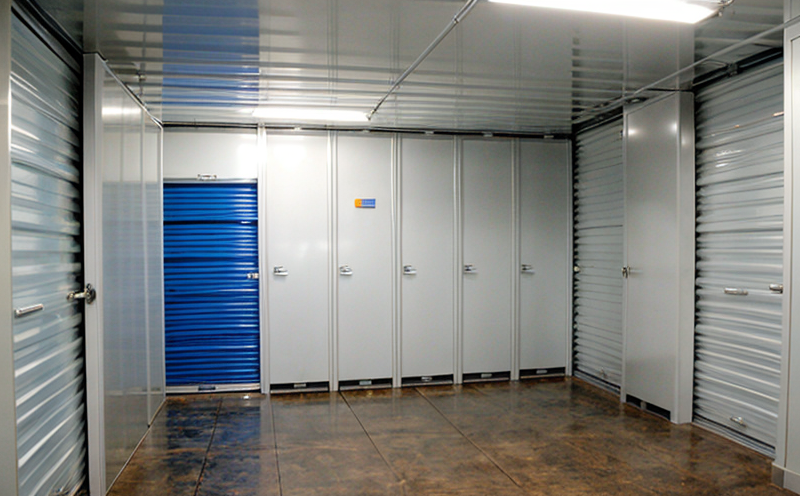Storage Temperature Limits: Understanding the Importance of Proper Temperature Control
Proper temperature control is crucial for the storage of various materials, including food, pharmaceuticals, chemicals, and electronics. Storage temperature limits are essential to prevent damage, degradation, or spoilage of these materials. In this article, we will discuss the importance of storage temperature limits, provide detailed information on storage temperatures for various materials, and answer frequently asked questions about storage temperature control.
Why Are Storage Temperature Limits Important?
Storage temperature limits play a critical role in maintaining the quality, safety, and integrity of stored materials. Here are some reasons why proper storage temperature control is essential:
Prevents Spoilage: High or low temperatures can cause spoilage or degradation of food products, making them unfit for consumption. For example, storing meat at high temperatures (above 40F/4C) can lead to bacterial growth and food poisoning.
Maintains Quality: Temperature fluctuations can affect the quality of stored materials. For instance, exposure to high temperatures can cause chemical reactions that degrade the quality of pharmaceuticals or electronics.
Ensures Safety: Storage temperature limits are critical for maintaining the safety of people and equipment. Incorrect storage temperatures can lead to explosions, fires, or toxic gas emissions, posing a significant risk to human life and property.
Compliance with Regulations: Many industries, such as food, pharmaceutical, and chemical production, have regulations that specify storage temperature limits to ensure compliance with safety standards.
Storage Temperature Limits for Various Materials
Here are some general guidelines on storage temperature limits for various materials:
Food Products:
Fresh produce (e.g., fruits, vegetables): 32F (0C) to 45F (7C)
Meat, poultry, and seafood: 32F (0C) to 40F (4C)
Dairy products (e.g., milk, cheese): 32F (0C) to 40F (4C)
Bakery products (e.g., bread, pastries): 50F (10C) to 70F (21C)
Pharmaceuticals:
Solid dosage forms (e.g., tablets, capsules): 50F (10C) to 75F (24C)
Liquid dosage forms (e.g., syrups, suspensions): 32F (0C) to 70F (21C)
Parenteral products (e.g., injectables): -20F (-29C) to 40F (4C)
Chemicals:
Flammable liquids (e.g., gasoline, paint thinner): -20F (-29C) to 120F (49C)
Corrosive chemicals (e.g., acid, base): 32F (0C) to 100F (38C)
Hazardous chemicals (e.g., pesticides, cleaning agents): -20F (-29C) to 90F (32C)
Electronics:
Semiconductors and microprocessors: 0C to 30C
Printed circuit boards (PCBs): 0C to 35C
Batteries: 10C to 40C
Storage Temperature Limitations for Specific Industries:
Here are some industry-specific storage temperature limits:
Food Industry
Meat, Poultry, and Seafood: Store at 32F (0C) to 40F (4C).
Dairy Products: Store at 32F (0C) to 40F (4C).
Bakery Products: Store at 50F (10C) to 70F (21C).
Pharmaceutical Industry
Solid Dosage Forms: Store at 50F (10C) to 75F (24C).
Liquid Dosage Forms: Store at 32F (0C) to 70F (21C).
Parenteral Products: Store at -20F (-29C) to 40F (4C).
Chemical Industry
Flammable Liquids: Store at -20F (-29C) to 120F (49C).
Corrosive Chemicals: Store at 32F (0C) to 100F (38C).
Hazardous Chemicals: Store at -20F (-29C) to 90F (32C).
Electronics Industry
Semiconductors and Microprocessors: Store at 0C to 30C.
Printed Circuit Boards (PCBs): Store at 0C to 35C.
Batteries: Store at 10C to 40C.
QA Section:
Q: What are the storage temperature limits for frozen food products?
A: Frozen food products should be stored at a temperature of -18F (-28C) or lower.
Q: How do I determine the storage temperature limit for my specific product?
A: Check the manufacturers instructions, industry standards (e.g., USDA, FDA), and local regulations to determine the recommended storage temperature limits.
Q: Can I store sensitive materials in a walk-in refrigerator?
A: Yes, but ensure that the walk-in refrigerator is designed for storing sensitive materials and has adequate cooling capacity to maintain the required storage temperature.
Q: How often should I check on stored materials to prevent spoilage or degradation?
A: Regularly inspect stored materials, ideally every 24 hours, to detect any signs of spoilage or degradation.
Q: What are some common mistakes people make when storing sensitive materials?
A:
Not following storage temperature limits
Failing to maintain a stable temperature
Storing incompatible materials together
Inadequate ventilation in storage areas
By understanding and adhering to storage temperature limits, you can ensure the quality, safety, and integrity of stored materials. Always follow industry standards, manufacturers instructions, and local regulations when storing sensitive materials.
Note: This article is for general information purposes only. Consult with experts or industry professionals before implementing specific storage temperature controls.

































